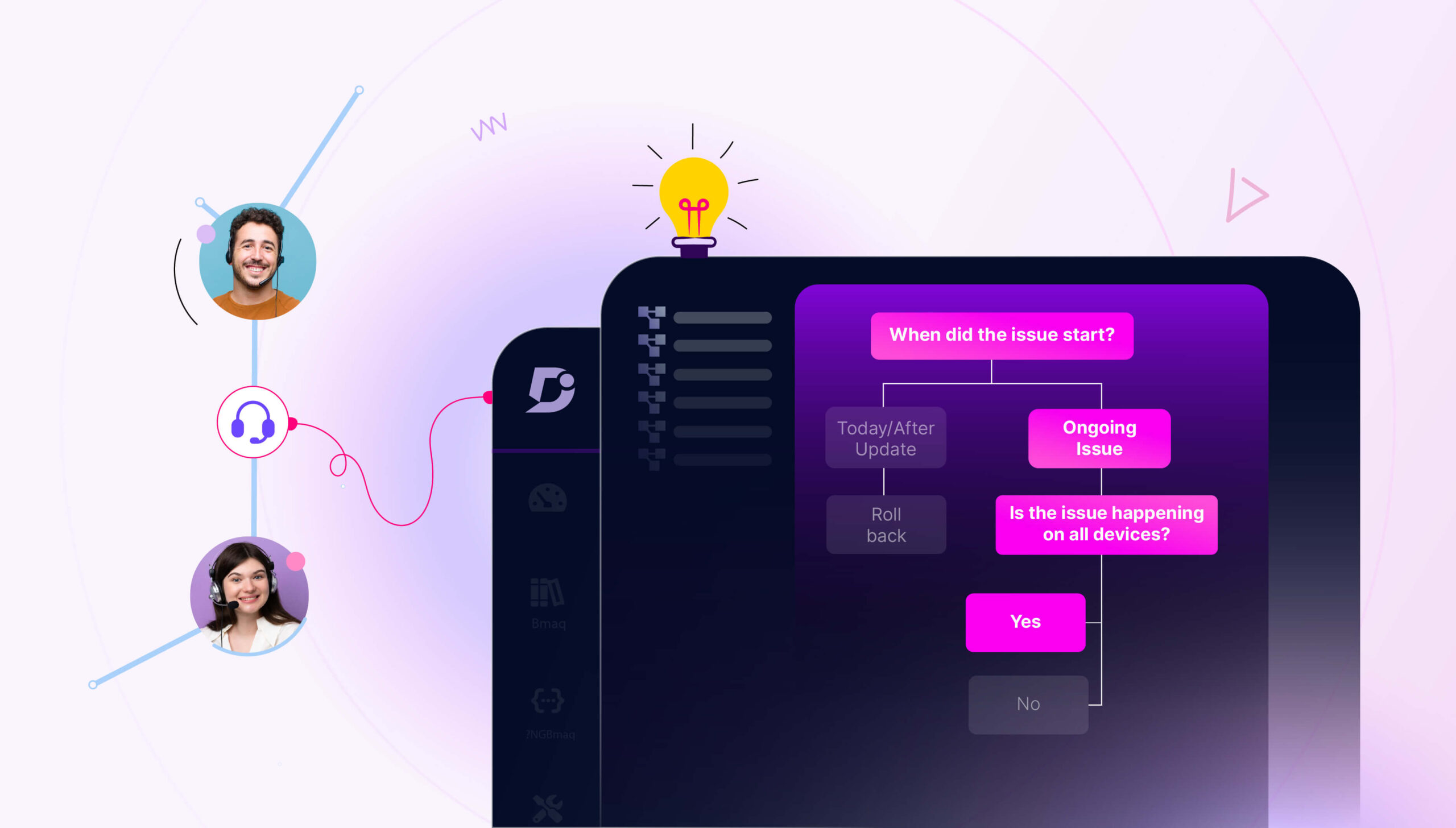Today’s customers are net crawlers, and they need to find answers to their queries immediately. They don’t want to wait around for someone from your company to answer the phone or reply to an email – they want a well-rounded, extensive FAQ page to answer their burning question about your product or services.
FAQs are a tried and tested way to greatly expand the capabilities of your customer service department, as they allow your customers to self-serve their own queries, enabling your agents to deal with more pressing matters.
What is FAQ Software?
FAQ software is an application that allows you to write, edit, and publish self-service content for your customers. Depending on the software you choose, you may have the ability to serve content in multiple categories and have customers search for content using a search bar.
FAQ software may also come with the capabilities for connecting customers with content through live chat or a chatbot, expanding the ways that customers can benefit from self-service.
Why does your business need FAQ Pages?
Creating FAQ pages is a vital component of your customer service strategy. Without FAQs, your customers are left in the dark or forced to contact a human to get an answer to a simple question.
Improve the User Journey
When customers are getting started with your products and services, they often have common questions that can be answered by appropriate content. You’ll improve the user journey by having FAQs available every step of the way that provide answers to your customers’ questions. This makes customers less likely to churn or defect to your competitors because they don’t have to look far for helpful and engaging content.
Reduce ticket volumes
The more customers who can self-serve using your FAQ pages, the fewer tickets are sent to your customer support team. Instead of fielding basic queries all day long, your support agents are free to focus on the more complex problems and also undertake strategic work.
Save you money on customer service
Since you are reducing ticket volumes by encouraging customers to self-serve, this approach saves you money on customer service because you will have fewer customers to deal with. You are able to accomplish more with less and need fewer agents available while your sales continue to increase.
Help you serve customers swiftly
Today’s customers are looking for instant answers to their questions. Your FAQ pages are always available with answers available in a few clicks. It takes much less time to use your FAQ pages than wait for a response from the customer support team, and customers will appreciate the investment in their experience.
Improve customer satisfaction
When they have quick answers to their queries available, customer satisfaction is bound to rise. Self-service capabilities mean you’re providing what your customers expect, which is the ability to solve problems themselves.
Convert casual visitors to customers
Visitors who would otherwise browse your website and leave will be attracted by your comprehensive FAQs. Answering all your visitors’ questions means you can convert casual visitors into paying customers, all without lifting a finger.
What should be included in an FAQ template?
The template for your FAQs is simple but there are a few features that you need to consider for your frequently asked question template.
- Question and answer structure: FAQs are organized in the format of question and answer.
- Categories: your FAQs are sure to fall under different categories so make sure you group them together to enable customers to discover content easily.
- Navigation: if you don’t have many questions then you may be able to get away with a simple list. For more complex FAQs, you’ll need a navigational menu or a table of contents to help organize your content.
- Customization and branding: FAQs should be aligned with your company’s branding, so be sure to consider colors, fonts, and imagery with this in mind.
Also read: Best AI Prompts For Creating FAQs
Features to consider when investing in FAQ software
There are several features you should look out for when thinking about investing in your FAQ software.
AI-powered Smart search – a smart search bar should allow customers to search for queries in your FAQs, with auto-complete to suggest potential articles based on keywords your customers type in.
Rich text editor – your editor should be easy to use, and intuitive when it comes to inserting videos and images. It should provide the capabilities for protips and warning messages.
Clear displays and intuitive navigation – your FAQ software should come with a category manager so you can manage and organize the categories for your content. Navigation should be displayed in a menu or table of contents to help customers browse.
Customization and branding – it should be possible to customize your FAQs to suit your company’s branding, with the ability to change fonts and colors without the need for manual coding.
Feedback and analytics – you should be able to access analytics on how customers are using your FAQs, such as recording failed searches, broken links, most used keywords, best-performing articles, etc.
Multilingual support – if your customer base is spread across the globe then it’s likely you’ll need FAQ software that can provide multilingual support. It should be easy to translate content into different languages to enable localization.
Intelligent integrations – your FAQ software should integrate with all your favorite tools, including team messaging software and help desk software.
Mobile responsive platforms – customers are accessing content from all sorts of devices and customers are likely to be using smartphones to view your FAQs. Ensure your FAQ software is mobile-responsive to cater to the needs of your customers.
Top 12 FAQ software to consider in 2025
Here is a list of top FAQ software that will ensure good FAQ pages for your business. This detailed FAQ software review covers 12 tools and all the info you need: pros and cons, pricing, features, integrations, and screenshots to help you choose something that fits your needs.
1. Document360
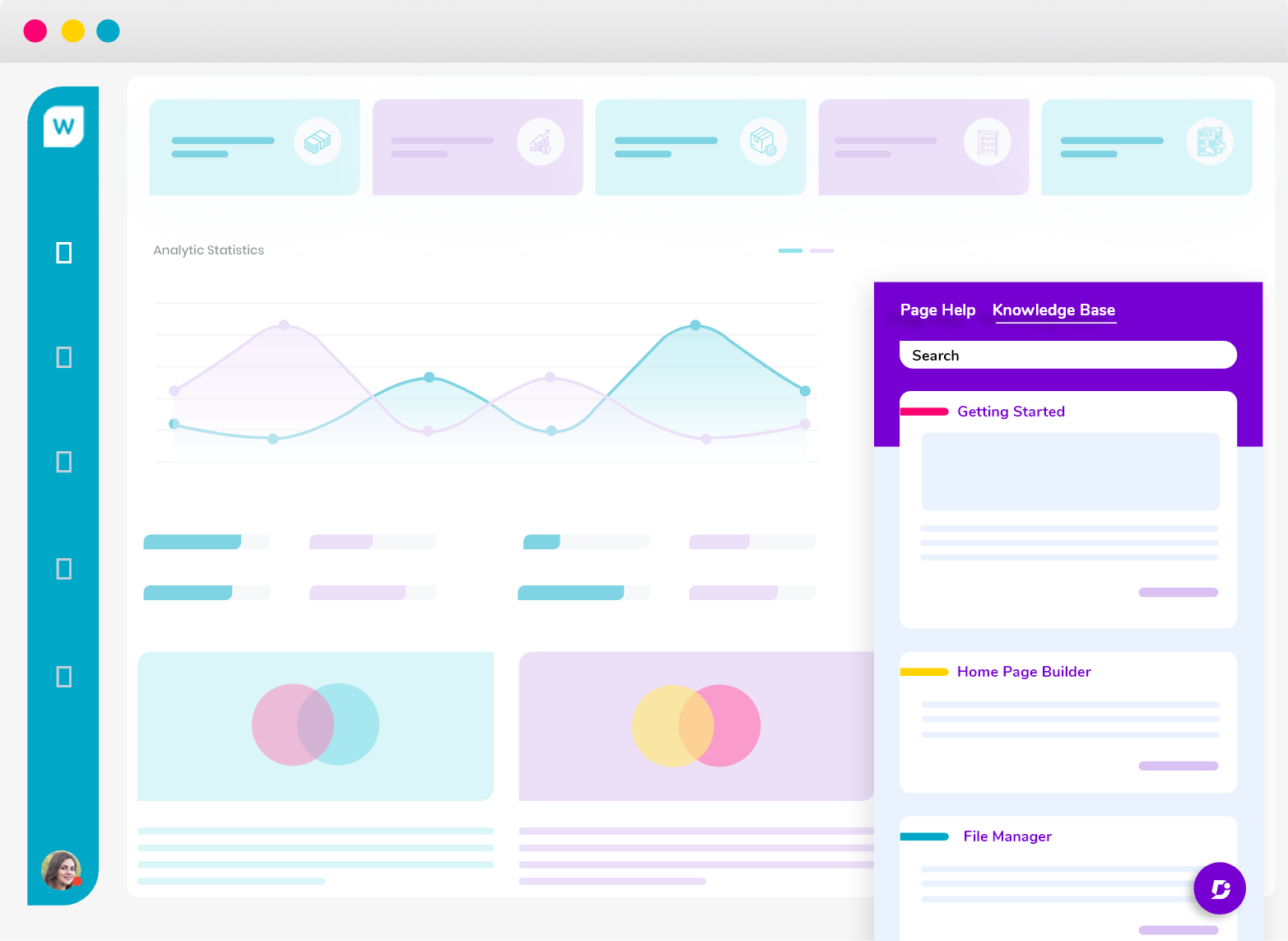
Support teams overwhelmed by repetitive queries need more than a static FAQ page—they need a smart, scalable solution. Document360 is built for exactly that. It helps businesses create dynamic, intuitive, and searchable FAQ pages that dramatically reduce ticket volume and improve customer satisfaction.
With advanced editors and a clean interface, you can build rich FAQ pages complete with images, videos, and structured formatting. Organize questions using the powerful category manager to make answers easy to find for both customers and agents.
To supercharge your FAQ creation process, meet Eddy – the AI Writing Agent. Eddy is your personal writing assistant that turns prompts, transcripts, or videos into fully formatted, SEO-optimized FAQ articles. It automatically applies tone and style rules based on predefined style guides, helping your team publish faster while maintaining consistency. Eddy also supports multilingual content creation in 30+ languages—perfect for global customer support.
Key FAQ Features Built for Support Efficiency:
- Homepage builder to feature FAQs prominently on your website
- 24/7 self-service access for customers worldwide
- Ticket Deflector to guide users through troubleshooting before submitting tickets
- Analytics to track FAQ performance and optimize content over time
- Version control to roll back changes when needed
- Integrations with major support tools like Zendesk, Intercom, and more
Pros
- Intuitive Markdown editor that makes creating content a breeze
- The ability to roll back to different versions of your FAQs
- Supports both public and private knowledge sharing
- Speeds up article creation with Eddy AI
Document360 offers a 14-day free trial and flexible range of paid plans to meet various organizational needs.
Start your 14-day free trial today and see how Document360 turns your FAQ section into a self-service powerhouse—powered by AI, built for scale.
GET STARTED
2. HappyFox
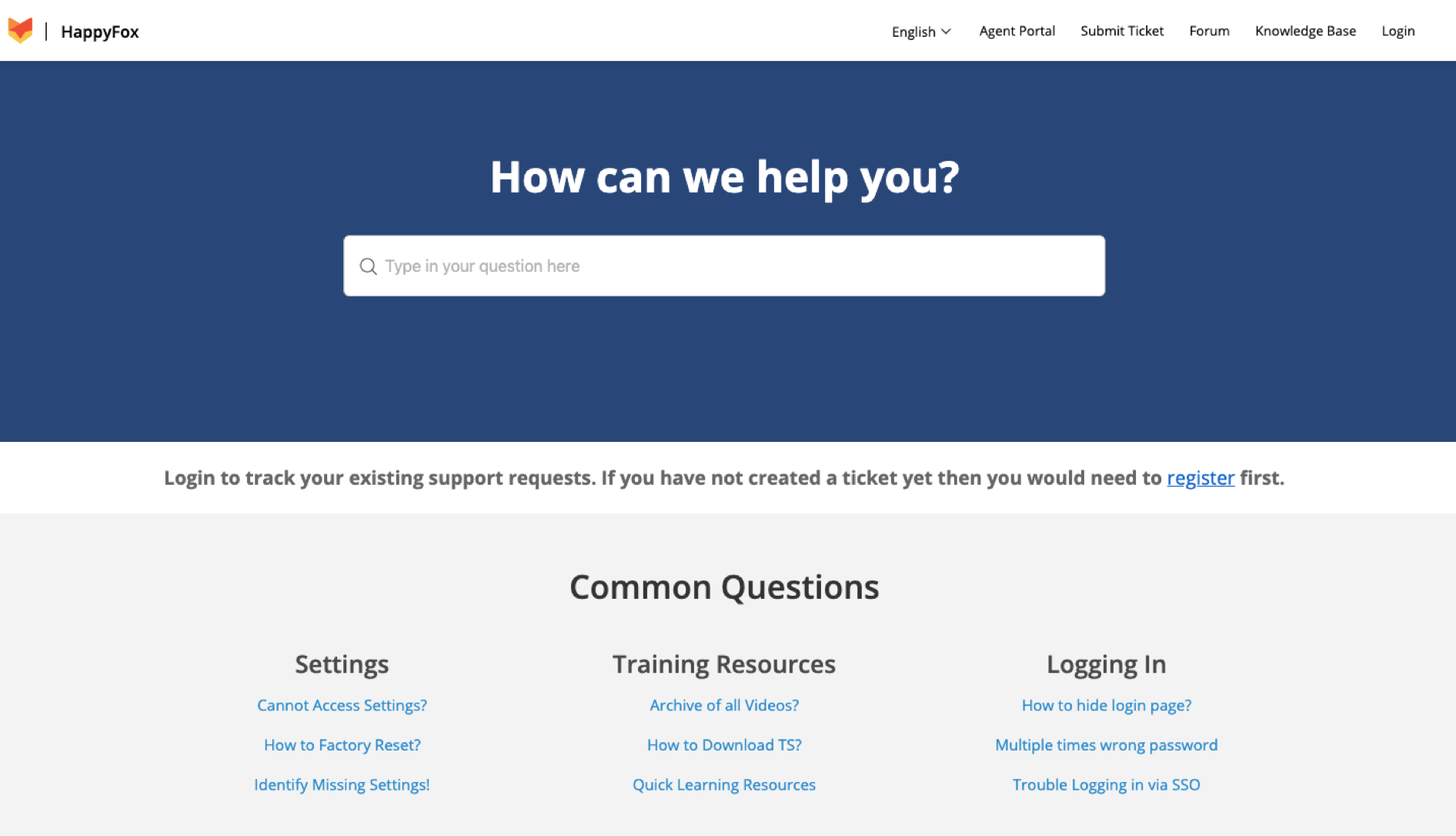
HappyFox is FAQ software for your business. It’s simple to use and beautiful to execute – customers can easily find their answers with HappyFox FAQs. Even better, the FAQs are social media-ready and responsive for mobile, so customers can access them on any device.
You have the option to host public self-service FAQs or an internal site just for help desk agents. You can create articles and sections, and easily embed images and videos into your content. The knowledge base CMS is easy to use for customers and staff.
When customers type in the search bar to look for articles in the FAQs, HappyFox automatically generates suggestions of related FAQ articles that could be useful for customers. It also comes with the ability for customers to proactively provide feedback on articles, submitting a form that tells you whether the article was helpful or not and why.
It’s possible in HappyFox to embed your FAQs in your website or application as a widget – the widget contains a link to your FAQs and allows your customers to self-serve without leaving the app.
Pros
- Advanced customization options mean you can match your FAQs to your brand seamlessly
- Friendly and responsive support team on hand to answer all your questions
HappyFox costs $29 per agent per month for its Mighty plan.
3. Slab
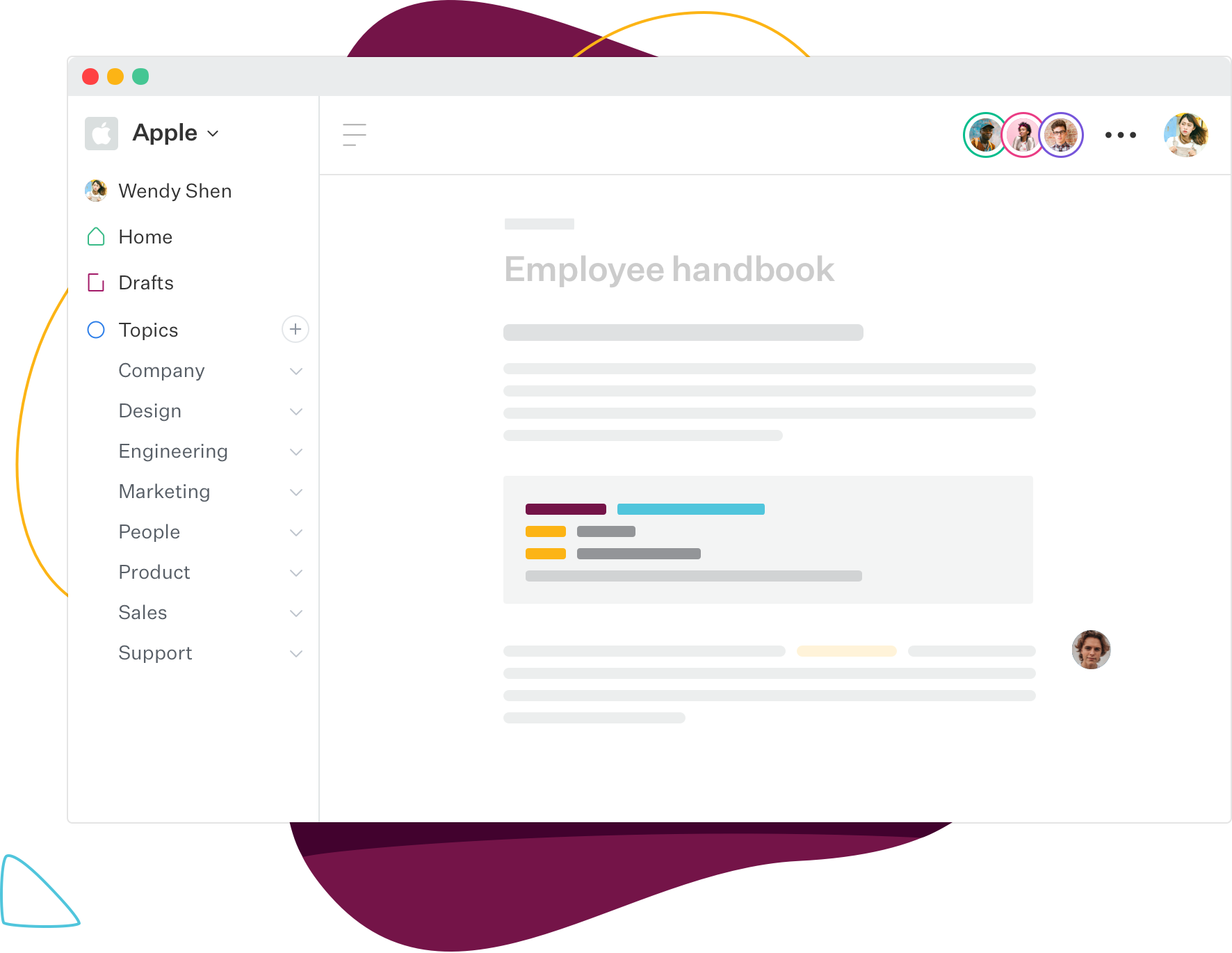
Slab is FAQ software for the non-technically savvy, so anyone can easily create FAQs with Slab that look good by default. The Slab interface is beautifully designed so that all FAQs offer a fabulous user experience with no effort required on the part of the creator.
The software is easy to set up and use so you can get started right away. Slab integrates with software like Slack, GitHub, Asana and Trello, and you can embed content from some of your favorite apps.
Unified search means you can pull in content from your Slab FAQs as well as all your other integrated tools. It’s simple to switch from other tools such as Guru, Google Docs, or Confluence.
Pros
- Slab Topics make it easy to organize your content and provide relevant context
- Slab brings together many of your favorite tools to create a hub of organizational knowledge
Slab costs $6.67 per user per month for its Startup plan.
4. KnowledgeOwl
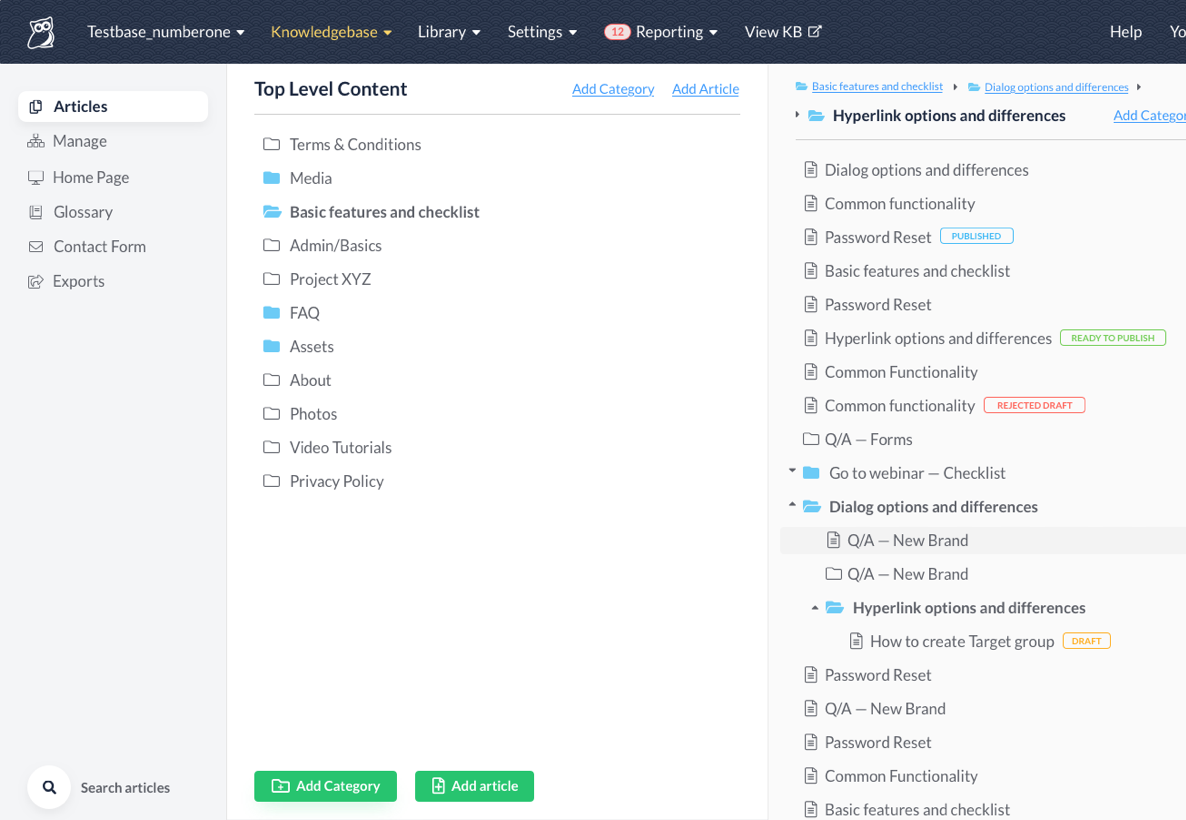
KnowledgeOwl is feature-rich FAQ software for you and your team. It’s easy to get set up and get started creating helpful self-service content for your customers. KnowledgeOwl comes with a simple WYSIWYG editor that also allows you to edit the HTML code. You can take advantage of themes, categories, and layouts to create a site that makes it easy for customers to browse.
You can make your FAQs secure and prevent unauthorized access with KnowledgeOwl’s advanced user and reader management. You can gather customer feedback with comments and ratings to find out how useful your articles are.
You can use the software to create a glossary of terms that define particular words that you are using in your FAQs. You can choose from one of six publishing statuses for your articles that allow you to control visibility and workflow.
Pro
- Amazing customer support whenever you need it
- You can use the KnowledgeOwl API to integrate with other applications
KnowledgeOwl costs $79 per month for their Flex plan.
5. Stonly
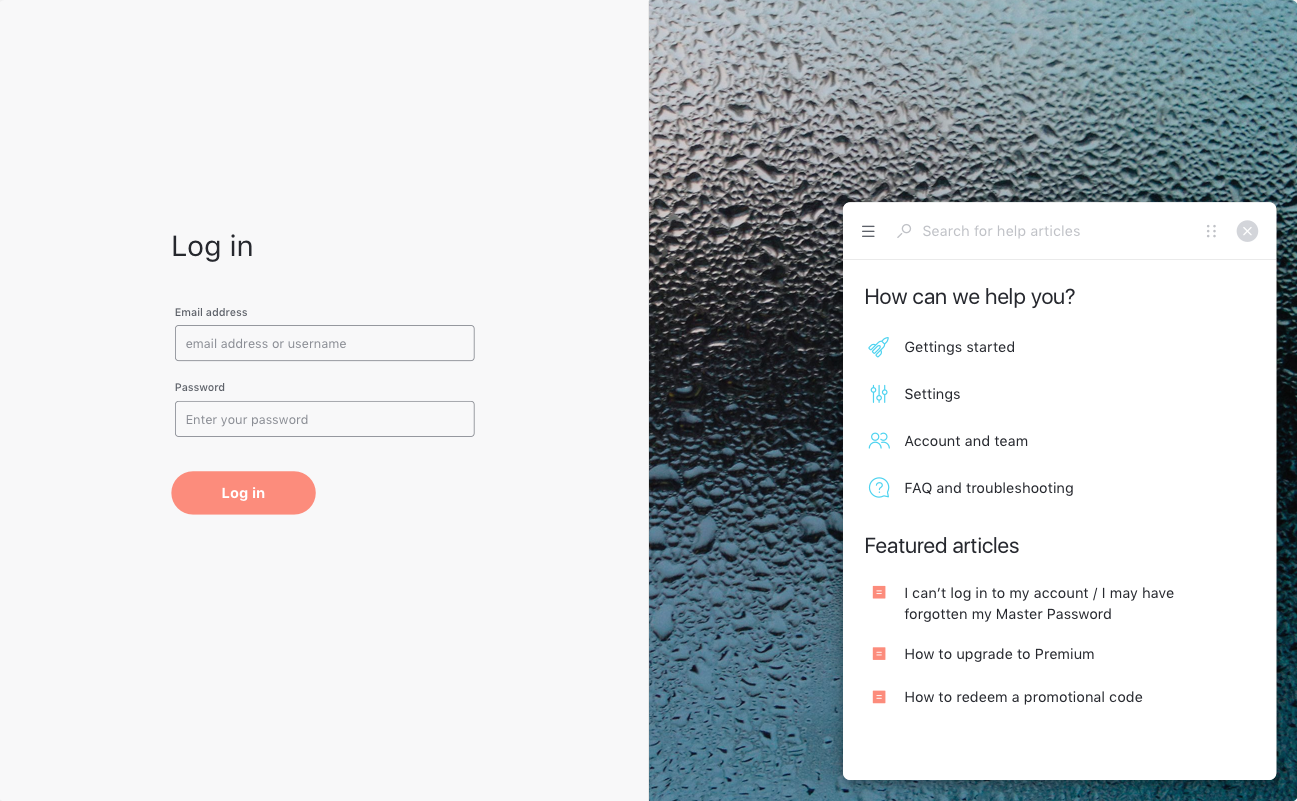
Stonly is an interactive walkthrough software that guides your customers to the answers that they’re seeking. Stonly offers the ability to create engaging guides that are customized with relevant media in a step-by-step format. It can automatically display contextually relevant articles that render a seamless onboarding experience for your customers.
It’s simple to customize and style your guides using the UI or add custom CSS to help match your brand. Creating your guides doesn’t require a developer or a designer, making them really fast to set up and launch. You can embed your guides anywhere on your website or in your current help center articles.
You can use customer data to segment and target users with guides and use guides to collect attributes that sync with your CRM. The platform provides integrations with Zendesk, Freshdesk, and Front to log user data for a better support experience. You can use Stonly to create custom contact forms to collect user data, as well as NPS and other customer surveys.
Pros
- The User Interface is simple to use
- Their customer support is responsive and caring
Stonly costs $49 per month for their Starter plan.
An intuitive knowledge base software to easily add your content and integrate it with any application. Give Document360 a try!
GET STARTED
6. Support Hero
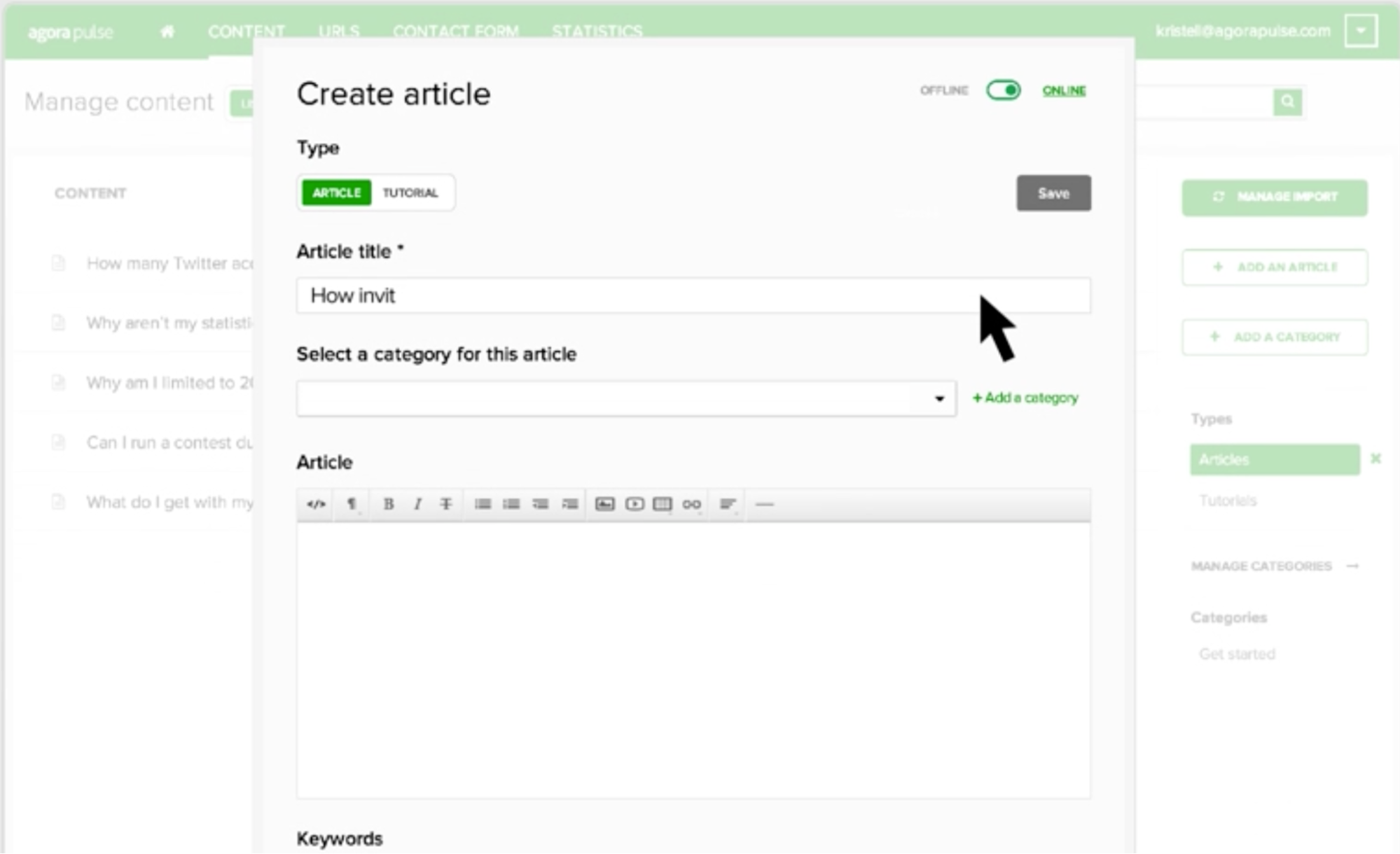
Support Hero is FAQs software of which the main advantage is embedding your help widget anywhere within your website or application. The widget provides access to articles and videos from anywhere on your site and is context-sensitive.
Support Hero’s advanced reporting allows you to see what your users are searching for and what they need help with. Insights into your customers’ needs will enable you to create the best support content that matches their most common requests.
Connect Support Hero with your favorite helpdesk including Salesforce’s Desk, Freshdesk, and Uservoice. The Smart Contact Form encourages your customers to search the FAQs before contacting support, ensuring that “avoidable” support requests are a thing of the past.
Pros
- The ability to embed Support Hero inside your app or website
- Useful search metrics such as deflected tickets and failed searches
Support Hero costs $49 per month for the Small plan.
7. Zendesk Guide
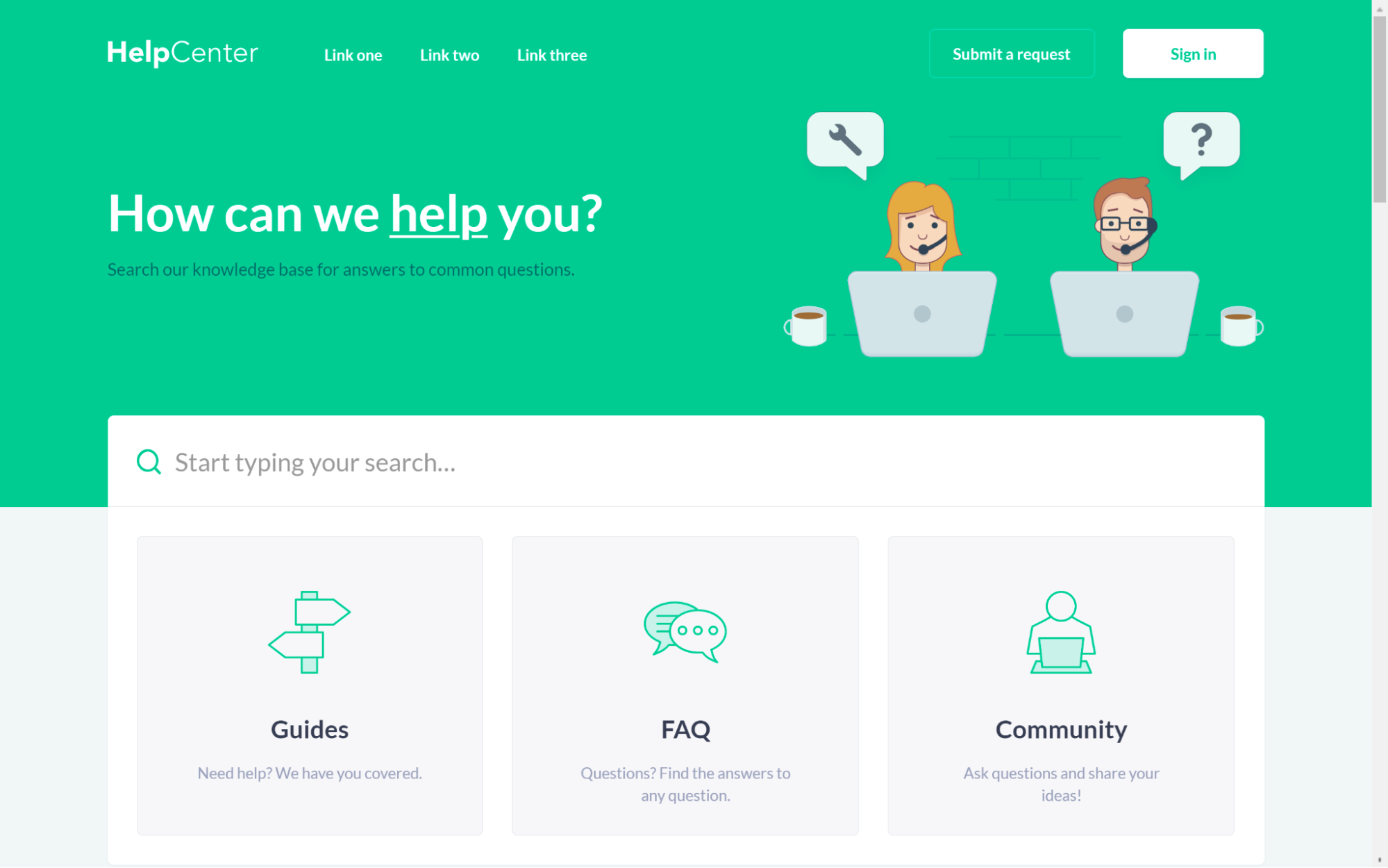
Zendesk Guide is powerful FAQ software that comes as part of the Zendesk suite of software. The guide enables you to provide customers with a complete self-service support option and empowers your agents to help more customers more quickly. You can create a branded customer-facing support site, an FAQs center for self-service support content, a community for customer collaboration, and a customer portal to submit tickets.
Articles are divided into categories and sections, allowing you to easily organize your content in a way that enables customers to discover what they’re looking for. It’s possible to brand your help center with custom colors and fonts and customize the page code if you have development skills available. You can also migrate existing content from another knowledge base and import it into the Zendesk Guide.
Take advantage of Answer Bot which is a tool within Guide that provides relevant answers to customers through Artificial Intelligence.
Pros
- You can create localized versions of your FAQ content
- You can define who has access to different content in your FAQs
- Integrates fully with Zendesk Support so you have well-defined workflows
Zendesk Guide costs $15 per month for the Professional plan.
8. HelpDocs
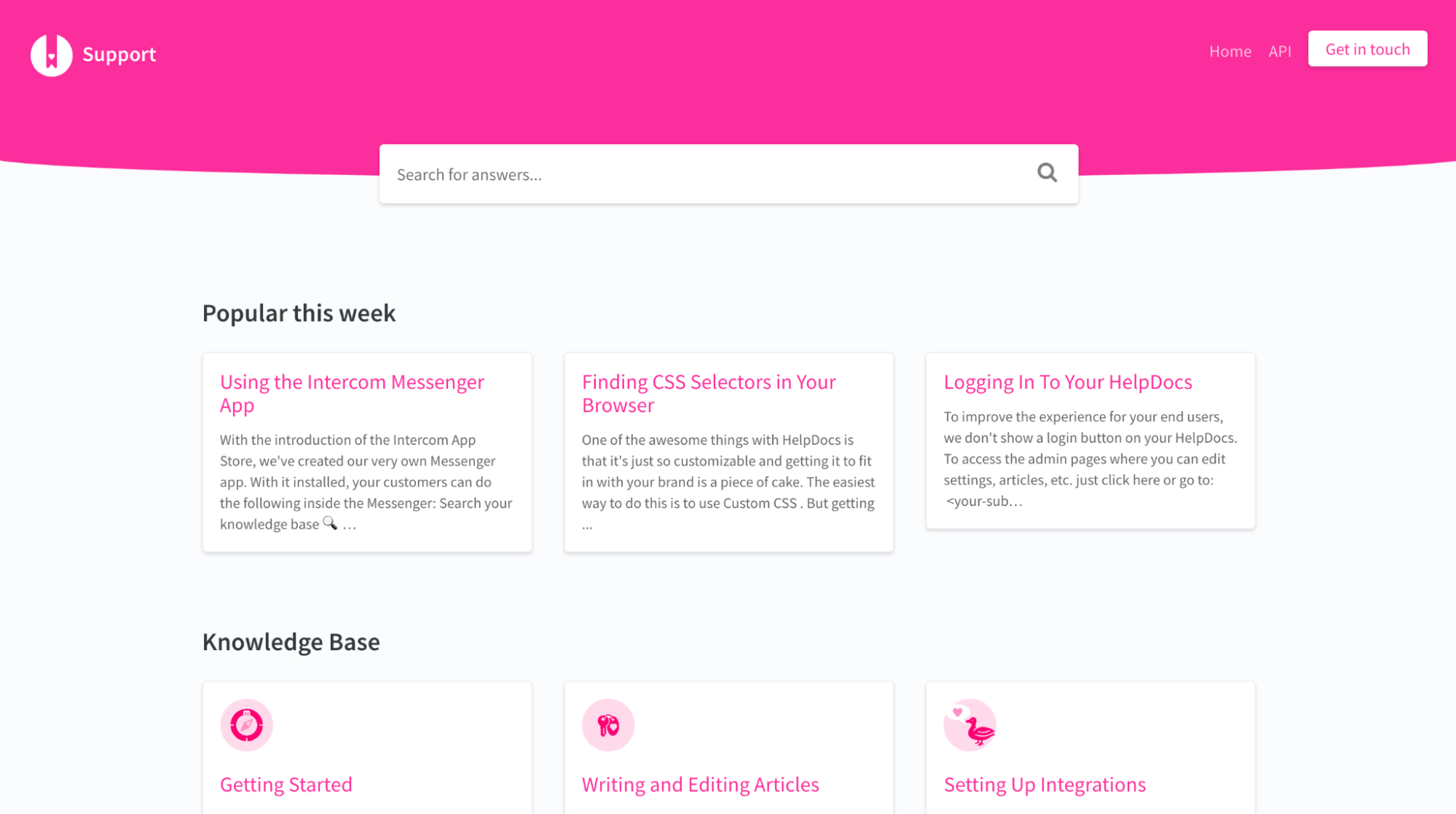
HelpDocs enables your customers to help themselves with its stunning FAQ software. You can build, host and monitor your FAQs in one piece of software so you can be sure you’re meeting your customers’ needs. It’s possible to set up your knowledge base in just a couple of minutes so you can spend more time helping customers.
You can take advantage of an intelligent search that works right out of the box which HelpDocs has spent years honing to perfection. It’s tolerant of typos and works really quickly to give customers the answers they seek in milliseconds. You can customize your HelpDocs site as much or as little as you want, and it comes with CSS, Javascript and HTML templates to give you control over how your site looks.
HelpDocs offers native integrations with software such as Front and Chrome. You can integrate with customer support tools and communicate downtime with status integrations. It’s easy to rearrange your FAQs by dragging and dropping your categories and articles and saving changes before publishing.
Pros
- Uses accessible and adaptable templates to help you create content
- Analytics help you keep an eye on the number of tickets you’re getting and tickets avoided
HelpDocs costs $45 per month for the Start plan.
9. Help Scout Docs
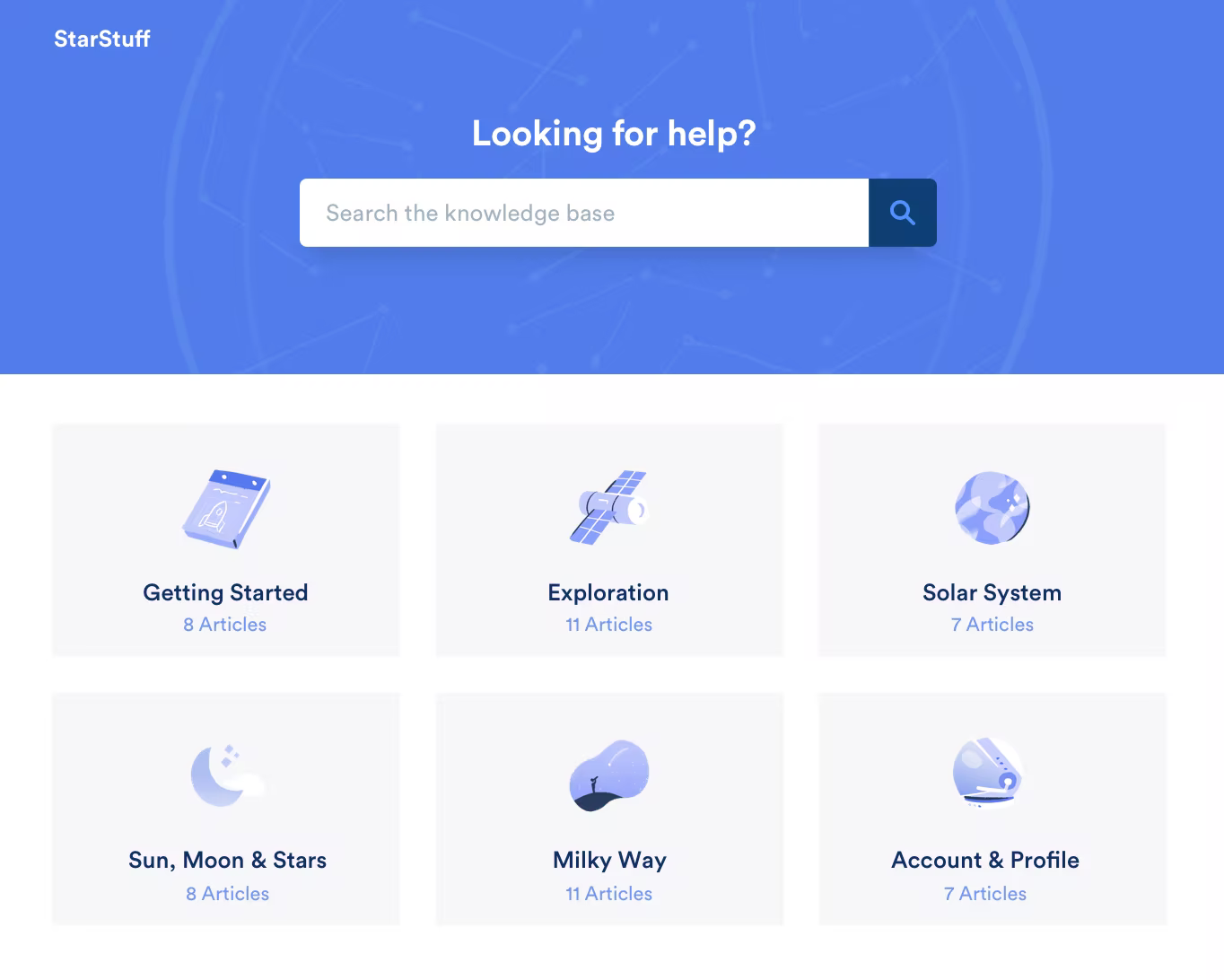
Help Scout’s Docs is an add-on FAQ software that comes bundled in with Help Scout’s support ticketing system. Docs is flexible and easy to use, allowing you to create FAQ content in minutes with the text editor that offers formatting in both WYSIWYG and HTML.
You can use their tool called Beacon to embed a chat-style widget on any page of your website or application that gives your visitors direct access to your FAQs. Docs also integrate with Help Scout’s shared inbox so that agents can add links to FAQ content directly within a customer email conversation, lowering response times and making helping customers much easier.
Docs is SEO-ready with the ability for your site to be indexed by search engines. The software is also mobile-responsive so customers can access the help they need wherever they are.
Pros
- Integrates with Help Scout so you can write and manage your FAQs all in one place
- The Docs Report tells you what customers are searching for, what they find and don’t find, and what percentage of customers are still contacting your support team
Docs cost $20 per user per month.
10. Elevio
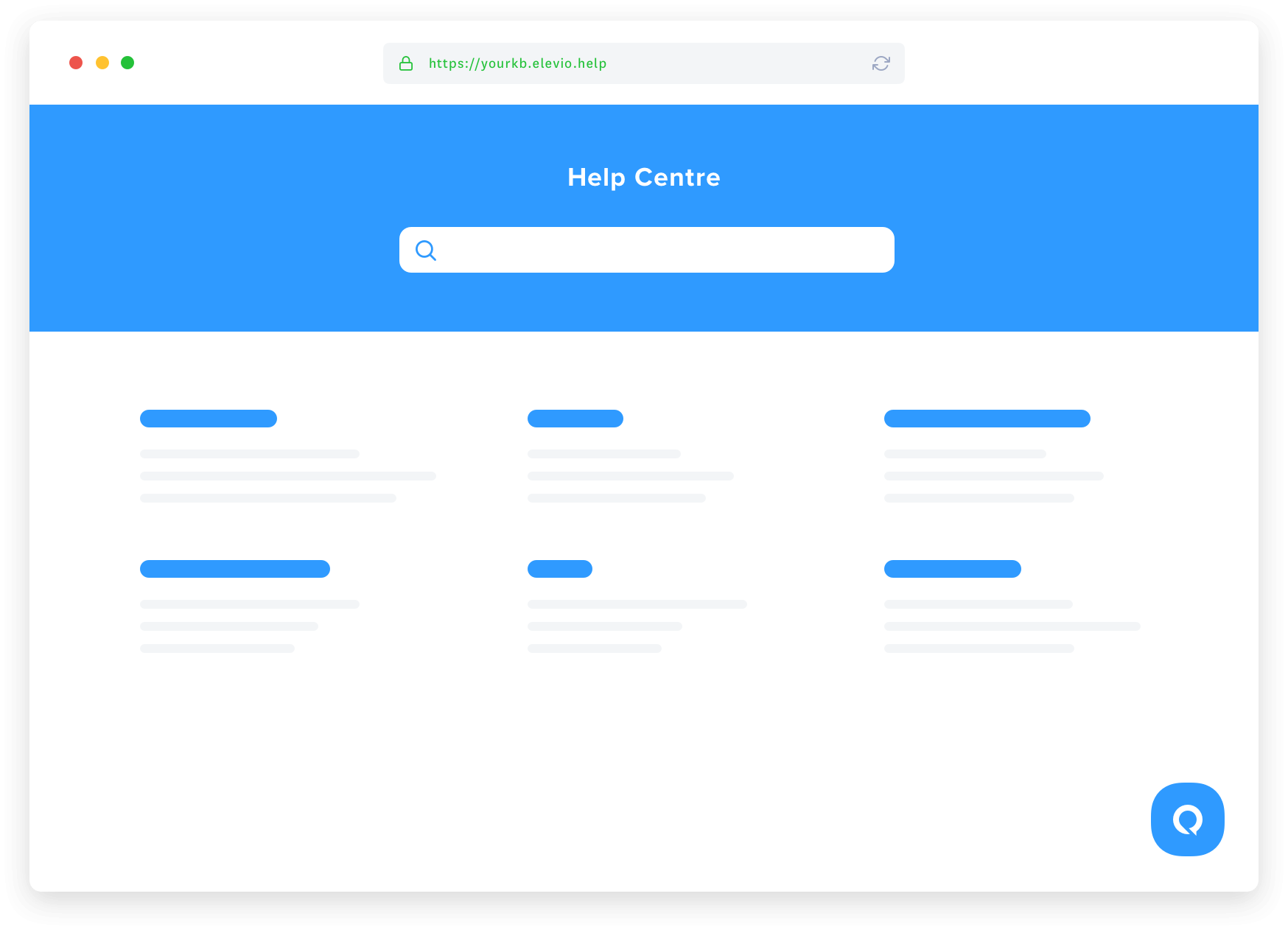
Elevio is fully functional FAQ software that allows you to create contextual knowledge for customers who are learning how to use your products. If your support teams are answering the same questions over again you can use Elevio to create in-app contextual content to deflect questions before they are asked.
The content editor is easy to use and a powerful tool that lets you build new content, and categorize and segment knowledge. Elevio’s Hub will auto-suggest missing content based on failed searches. The software reports on your content over time, letting you know when you need to make changes.
The Elevio Assistant and intelligent Hotspots deliver instant contextual support right within your app without any coding required – no more waiting for the dev team.
Pros
- Elevio gives you the ability to embed videos in your help content
- The software is available in multiple languages, allowing you to provide multilingual support
Elevio costs $79 per month for its Starter plan.
11. Whatfix
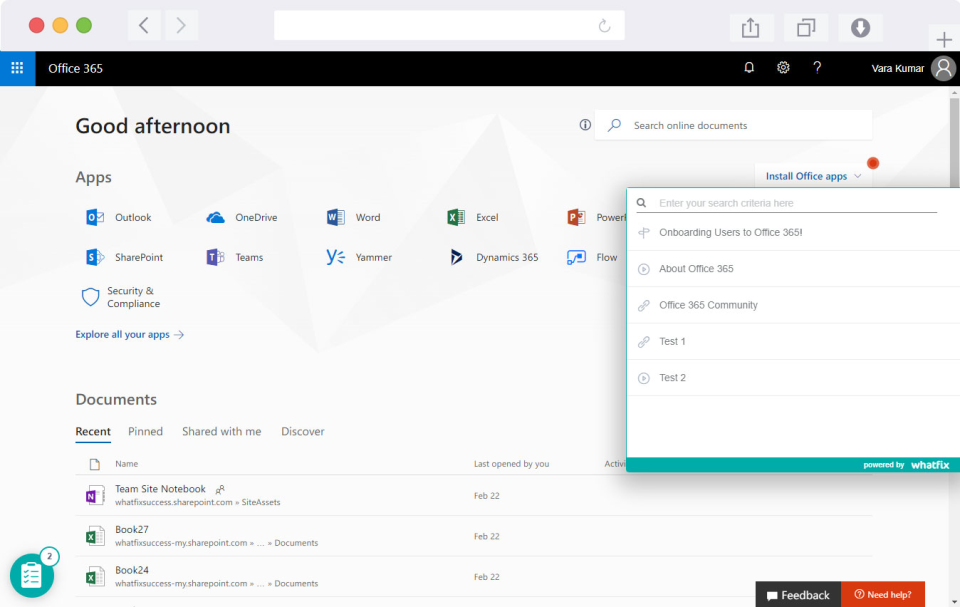
Whatfix is a Digital Adoption Platform (DAP) that can help you deliver FAQs to the users of your software. You can use Whatfix to introduce new features to your users through flows, beacons and popups.
As a Customer Experience Management Platform, Whatfix helps small and large businesses with application engagement, managing and personalizing the experiences with your software. The software enables users to perform critical tasks and reduce the time it takes to solve queries.
Whatfix features personalization, in-app knowledge management, change management, data validation, alerts and analytics.
Pros
- Responsive and helpful customer support team
- It’s easy to set up and use
Contact Whatfix for a pricing quote.
12. HelpCrunch
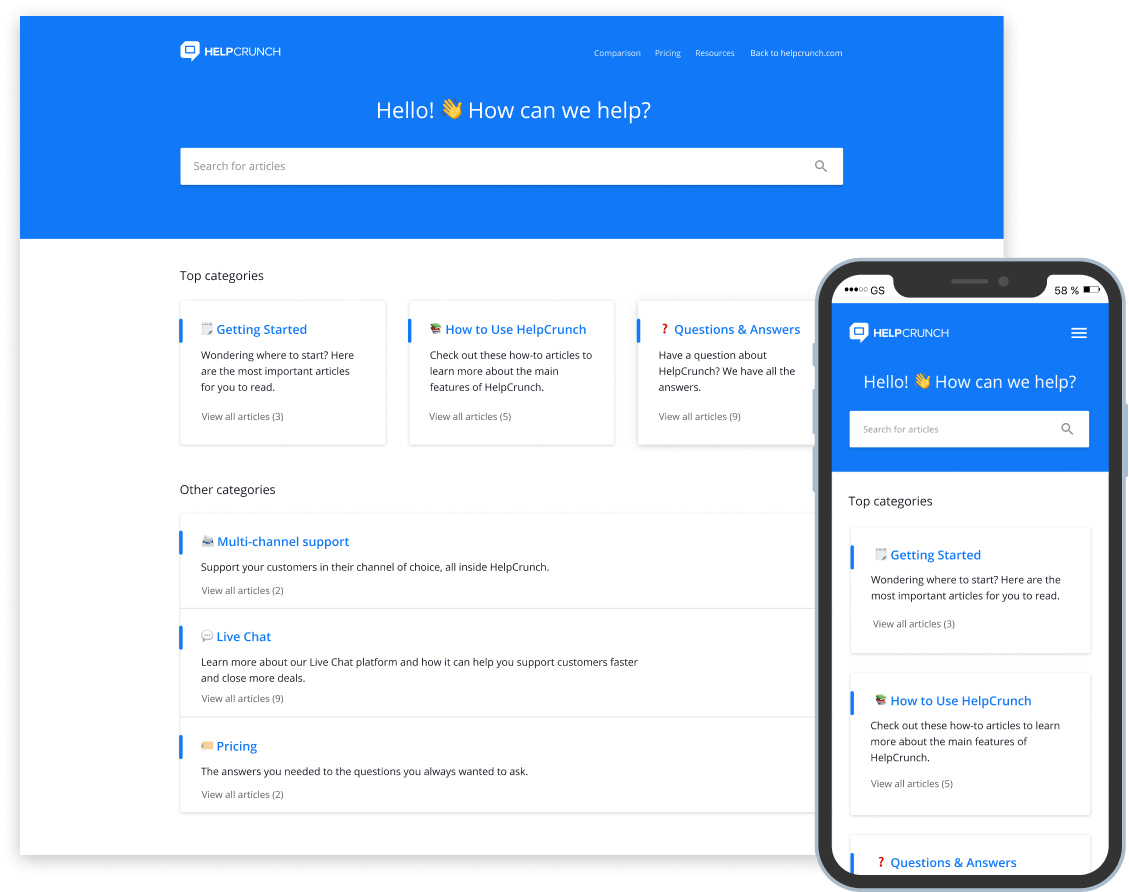
HelpCrunch offers valuable FAQ software that enables you to provide 24/7 customer self-service. It comes bundled in with their customer support software which you can use to take advantage of their integration.
HelpCrunch comes with a simple yet powerful visual editor that you can use to create your content. You can add images, videos and tables easily. It’s easy to manage the experience of your FAQs by grouping your content into categories and sections which will help your customers find answers more quickly.
The search function in HelpCrunch offers smart suggestions that automatically suggest relevant articles based on the keywords that are typed in. It integrates with Google Analytics so you can keep track of the failed searches on your FAQs and understand customer reactions to your articles. Keep your content SEO-optimized by metadata editing, and make your FAQs a part of your brand with appearance customization.
Pros
- Customize your FAQs with custom CSS, JavaScript, and more
- Integrate with other HelpCrunch software to extend the functionality of your FAQs
HelpCrunch costs $20 per user per month for its Basic plan.
Final remarks
Take your time when considering your new FAQs software, and take advantage of free trials to help you find a solution that truly suits your needs. It’s worth spending the time and effort on this process since FAQs are so helpful for your customers – not only existing customers but also for turning prospects into paying customers.
FAQs are an integral part of your customer service strategy, reducing the number of support tickets you receive and allowing customers to solve problems themselves. You can scale your support team to help a larger customer base, all the while hiring fewer agents because most problems will take care of themselves.






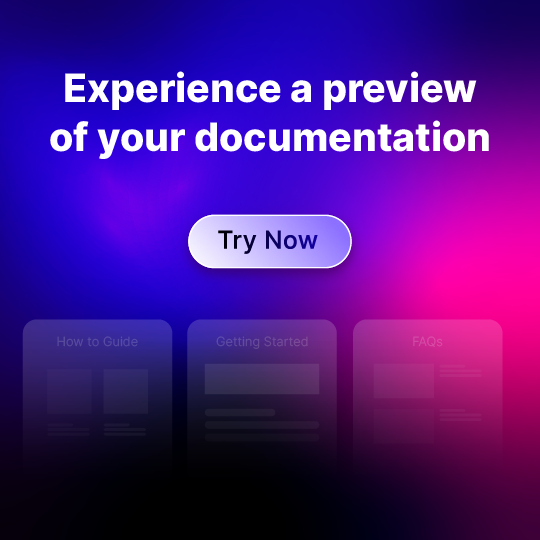
 –
– 

